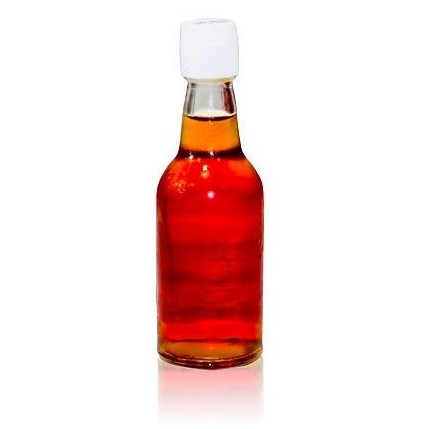Can Dogs Eat Fish Sauce? The Dos and Don’ts of Feeding Your Dog-2024

Can Dogs Eat Fish Sauce? Fish sauce is made by fermenting fish, usually anchovies, with salt. It’s known for adding a salty, umami flavor to food and is commonly used in many Asian dishes.
While it’s a flavorful addition to meals, the high sodium levels in fish sauce can be a major concern for dogs. Let’s dive into why it might not be the best choice for your pet and explore some safer options. So,let’s explore that- Can Dogs Eat Fish Sauce?
The Dos of Feeding Fish Flavors to Your Dog-Can Dogs Eat Fish Sauce?
Can Dogs Eat Fish Sauce? When considering fish flavors for your dog, it’s essential to focus on safe, healthy alternatives to enhance their meals. While fish sauce itself is not safe for dogs, there are many other ways to offer fish-based flavors without the associated risks. Let’s explore the dos of feeding fish flavors to your dog, ensuring they get the benefits without compromising their health.
Do Offer Plain Fish as an Alternative
Offering plain, cooked fish is a safe and nutritious way to give your dog a taste of fish without any harmful additives or excessive salt.
- Healthy Options: Salmon, cod, and whitefish are great choices.
- Preparation: Cook the fish thoroughly without seasoning, oils, or additives.
- Benefits: These fish are rich in Omega-3 fatty acids, promoting healthy skin, coat, and joints for your dog.
Do Consider Dog-Safe Omega-3 Supplements
Can Dogs Eat Fish Sauce? Omega-3 fatty acids are great for dogs, supporting their coat, joints, and overall health. Dog-specific fish oil supplements can provide these benefits without the high sodium levels found in fish sauce.
- Benefits: Omega-3s are known for reducing inflammation and improving heart health.
- Dosage: Follow the vet’s recommendations for the right amount based on your dog’s size and health needs.
- Safety: Ensure that the supplement is designed specifically for dogs to avoid harmful additives.
Do Use Low-Sodium Alternatives
Can Dogs Eat Fish Sauce? If you want to add a fish flavor to your dog’s food, using low-sodium broths or homemade fish treats is a safer choice. These alternatives can enhance the taste without the harmful effects of high salt levels.
- Homemade Broths: Make your own by simmering chicken or fish bones in water without adding salt or preservatives.
- Store-Bought Options: Choose low-sodium broths made specifically for pets to ensure your dog’s health is not compromised.
- Fish Treats: Making simple fish treats at home can be a fun way to offer fish-based flavors without any harmful additives.
Can Dogs Eat Fish Sauce? By following these dos, you can safely incorporate fish flavors into your dog’s diet, providing them with the health benefits of fish while avoiding the dangers of fish sauce and other high-sodium options.
The Don’ts of Feeding Fish Sauce to Your Dog
Can Dogs Eat Fish Sauce? While fish flavors can be a delicious treat for your dog, fish sauce should never be part of their regular diet. Due to its high salt content and potential additives, feeding fish sauce to dogs can lead to health issues. In this section, we will go over the key things you should avoid when it comes to feeding fish sauce to your dog.
Don’t Offer Fish Sauce as a Regular Treat
Fish sauce, with its high salt levels, is not suitable for regular consumption by dogs. It’s best to limit exposure to prevent any risk of salt toxicity or kidney strain.
- High Salt Content: Fish sauce is extremely salty, which can lead to dangerous sodium buildup in your dog’s system.
- Health Risks: Regular consumption could cause dehydration, kidney issues, or high blood pressure.
- Occasional Use Only: Even in small amounts, it should only be used occasionally and not as a staple in their diet.
Don’t Use Fish Sauce with Added Chemicals
Some brands of fish sauce contain preservatives or flavor enhancers that may harm your dog’s digestive system or overall health. Always check labels to avoid exposing your dog to harmful ingredients.
- Preservatives: Some chemicals used in fish sauces are not safe for dogs and can cause digestive issues or allergic reactions.
- Flavor Enhancers: Ingredients like MSG (monosodium glutamate) can be harmful to pets and should be avoided in any food you give them.
- Read Labels: Be cautious about the fish sauce brands you use; not all are created with pets in mind.
Don’t Ignore Portion Sizes
Can Dogs Eat Fish Sauce? Even though a small amount of fish sauce may seem harmless, it can quickly add up in sodium. Always be mindful of the portion sizes when considering any treat for your dog.
- Salt Overload: Even a tiny amount of fish sauce can contribute to excessive sodium intake.
- Health Implications: Too much salt can lead to serious health conditions like dehydration and kidney damage.
- Moderation is Key: If you do decide to give your dog fish sauce, ensure it’s in a very small amount, and only occasionally.
By avoiding these don’ts, you can ensure that you’re keeping your dog safe and healthy while still offering them tasty, fish-flavored alternatives.
Risks of Feeding Fish Sauce to Dogs
Can Dogs Eat Fish Sauce? Fish sauce, while a staple in many human diets, is not safe for dogs due to several potential health risks. The combination of high sodium, additives, and specific ingredients can lead to serious issues if consumed. Here, we explore the main risks associated with feeding fish sauce to your dog.
Salt Toxicity
Fish sauce contains extremely high levels of salt, which can be dangerous for dogs. Too much sodium can result in salt toxicity, leading to a number of serious health problems.
- Dehydration: Excess salt draws water out of the body, causing dehydration, which can be harmful to your dog’s overall health.
- Kidney Strain: Overloading your dog’s system with salt can strain the kidneys, potentially leading to long-term kidney damage.
- Elevated Blood Pressure: High sodium levels can also raise your dog’s blood pressure, which can affect their cardiovascular system.
Digestive Discomfort
Fish sauce may also cause digestive issues in dogs. The strong flavor and high salt content can upset their stomachs, especially in dogs with sensitive digestive systems.
- Vomiting: Excessive salt or additives may trigger vomiting, a common reaction to digestive irritation.
- Diarrhea: Dogs may experience diarrhea or loose stools after ingesting fish sauce due to its irritating properties.
- Stomach Upset: Even small amounts may cause discomfort in some dogs, leading to bloating or gas.
Allergic Reactions
Some dogs may have allergies to fish or certain ingredients used in fish sauces, which could cause adverse reactions.
- Fish Allergy: Dogs with a fish allergy may experience itching, swelling, or more severe symptoms like difficulty breathing.
- Additive Sensitivities: Certain preservatives or flavor enhancers in fish sauces may trigger allergic responses in sensitive dogs.
- Skin Issues: Allergic reactions can lead to skin rashes, hives, or other visible discomforts.
Can Dogs Eat Fish Sauce? Given these risks, it’s important to avoid feeding fish sauce to your dog and consider safer alternatives that don’t pose a threat to their health.
Signs of Salt Toxicity in Dogs
Can Dogs Eat Fish Sauce? Salt toxicity, caused by consuming excessive sodium, can be life-threatening for dogs. If your dog accidentally eats fish sauce or other salty foods, it’s crucial to watch for signs of salt toxicity. Recognizing these symptoms early can help prevent serious health issues.
Early Indicators
The initial signs of salt toxicity can be quite subtle but should still be taken seriously. Watch for the following:
- Excessive Thirst: Your dog may drink water constantly due to dehydration caused by high sodium levels.
- Vomiting: The stomach may react to the excess salt, leading to vomiting.
- Frequent Urination: High sodium intake causes your dog to urinate more frequently as the body tries to expel the excess salt.
- Diarrhea: Salt overload can also irritate the digestive system, resulting in loose stools or diarrhea.
Severe Symptoms
If left untreated, salt toxicity can worsen and lead to more severe symptoms. These can include:
- Muscle Tremors: Your dog may experience trembling or twitching due to the effects of excessive salt on the nervous system.
- Disorientation: High sodium levels can affect brain function, causing your dog to seem confused or uncoordinated.
- Seizures or Coma: In extreme cases, salt toxicity can lead to seizures or a coma, both of which require immediate veterinary intervention.
Action Steps
If your dog shows any signs of salt toxicity, it’s crucial to act quickly:
- Contact Your Vet: If your dog exhibits any of the symptoms mentioned above, seek veterinary help immediately. Salt toxicity can be life-threatening if not addressed quickly.
- Hydration: Encourage your dog to drink water, but be careful not to overwhelm them with too much at once.
- Vet Consultation: A veterinarian will assess the severity and provide treatments such as intravenous fluids to restore hydration and flush out excess sodium.
Prompt action can prevent serious complications and help your dog recover from salt toxicity.
Safer Flavor Enhancers for Your Dog’s Food
Can Dogs Eat Fish Sauce? When looking for ways to make your dog’s meals more exciting, it’s important to choose flavor enhancers that are both safe and nutritious. While fish sauce may not be the best option due to its high salt content, there are several healthier alternatives you can use to add flavor and variety to your dog’s diet. These options provide essential nutrients without the risks associated with salty, processed ingredients.
Plain Cooked Fish
Unseasoned, cooked fish is a great option to enhance your dog’s meals. Fish like salmon, sardines, or whitefish are not only flavorful but also rich in Omega-3 fatty acids. These nutrients help promote healthy skin, coat, and joints.
- Nutritional Benefits: Rich in protein and healthy fats.
- No Added Salt: Make sure the fish is cooked without any seasoning to keep it safe.
- Variety: You can rotate different types of fish to keep your dog’s meals interesting.
Homemade Broth
Can Dogs Eat Fish Sauce? If you’re looking for an easy way to add flavor to your dog’s food, homemade, unsalted chicken or beef broth is an excellent choice. It’s a great way to add moisture to dry food and can help make mealtime more appetizing.
- Low Sodium: Always make it yourself or ensure it’s specifically made without any added salt.
- Hydration: Broth helps keep your dog hydrated while enhancing their meals.
- Versatile: You can freeze it into cubes or mix it directly with food.
Vegetable Purees
Pureed dog-safe vegetables like carrots, sweet potatoes, or pumpkin are fantastic for adding flavor and nutrients to your dog’s food. Vegetables can provide vitamins and fiber that support digestion and overall health.
- Nutrient-Rich: Carrots are rich in Vitamin A, while sweet potatoes offer fiber and antioxidants.
- Digestive Support: Fiber helps with healthy digestion and bowel movements.
- Customizable: Mix different vegetables to find your dog’s favorite flavor.
Can Dogs Eat Fish Sauce? By incorporating these safe and nutritious alternatives, you can enhance your dog’s meals while maintaining a balanced and healthy diet. These flavor boosters are not only safe but also offer a range of health benefits, making them ideal choices for your furry friend.



